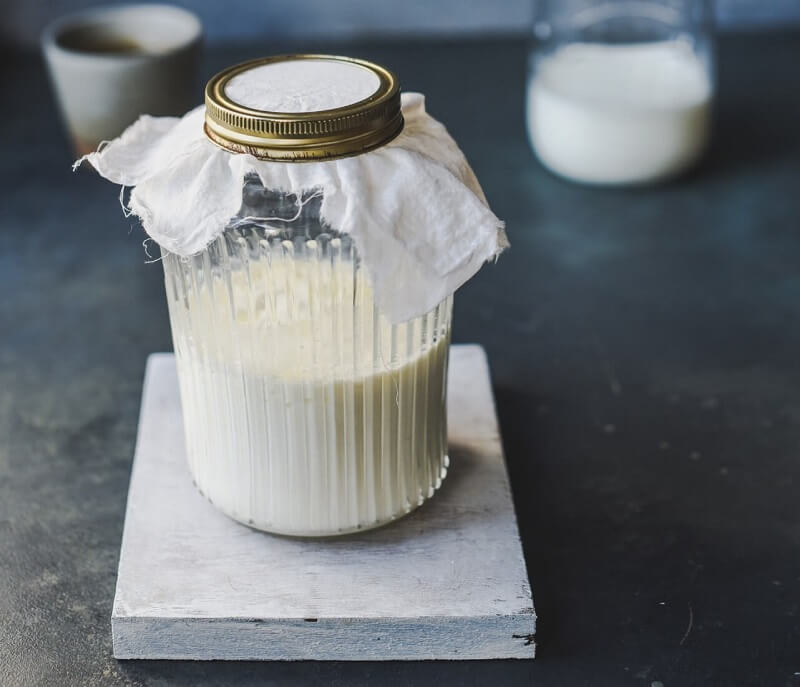When should you take protein?
- When to eat protein - needs during the day
- How to eat for protein - when to take protein powder
- How to incorporate protein into your daily diet
When putting together a meal—breakfast, lunch, or dinner—it's important to ensure it contains carbohydrates, valuable fats, vitamins, trace elements, and, of course, protein. Proteins are the building blocks of the body and necessary for its proper functioning. Factors such as age, gender, and lifestyle determine individual protein needs. When should you consider supplementing your diet with an extra portion of protein and the amino acids it contains?
Protein eats - needs during the day
When should you eat protein? Protein should be included in every meal, ideally along with fats, carbohydrates, and fresh vegetables. Why is it so important?
The presence of protein in our daily diet is crucial for many reasons. Proteins are the building blocks of every cell in our body and an important component that regulates processes in the circulatory, metabolic, and immune systems.
It is estimated that the body should consume at least 1 g of protein per 1 kg of body weight throughout the day – although the requirement will be higher in many cases, particularly in the case of:
- Children and young people,
- in women during pregnancy and breastfeeding,
- physically active people and athletes,
- People who eat vegan or animal-free food.
Protein is essential for proper body growth and during training aimed at building muscle mass. Protein accelerates recovery and is a valuable source of energy. People who avoid protein from animal products, meat, eggs, or milk should also consider regularly supplementing their diet. In this case, it's best to opt for plant-based protein-rich substitutes, such as products based on soy, oats, or other legumes.
How to eat for protein - when to take protein powder
Individual proteins consist of amino acids and are essential for the proper functioning of the entire body. A balanced diet is the foundation here – by accessing a variety of products such as meat, dairy products, whole grains, fats, vegetables, and fruit, you can consume the optimal amount of protein.
But what if certain groups of these products are excluded from the diet? Then protein powders can help supplement the diet. Protein powder is available in various forms. It can be a ready-made mix for making a cocktail, for example, with added flavorings, or a universal product – a powder that can be added to smoothies, drinks, breakfast dishes, or baked goods.
You can rely on a protein that is rich in endogenous and exogenous amino acids:
- of animal origin, mostly obtained from cow's milk and whey (which may be lactose-free through filtration),
- of plant origin, contained in the pressing residues of hemp, peas, rice or seeds and kernels (e.g. sunflower or pumpkin).
How to incorporate protein into your daily diet
Shakes can be consumed before or after training . A serving of nutrients provides valuable support for the body and accelerates the processes of regeneration and repair of micro-damage in the muscles. A protein-rich shake can also replace one of your meals, such as lunch—especially if you don't have time to cook. A protein-rich snack provides the body with plenty of energy while keeping you full for longer. It can therefore be an effective aid in the fight against snacking between meals during the day.
THE PUBLISHER'S CHOICE
Dried plums 1 kg BIOGO
- £6.08
- £6.08
- Unit price
- / per
Dried White Mulberries 500 g ORGANIC
- £5.07
- £5.07
- Unit price
- / per
Almonds 1 kg BIOGO
- £10.15
- £10.15
- Unit price
- / per
Cranberries sweetened with apple juice organic 1 kg BIOGO
- £14.21
- £14.21
- Unit price
- / per
Dried dates 1 kg BIOGO
- £3.65
- £3.65
- Unit price
- / per
Unpeeled buckwheat groats 1 kg BIOGO
- £2.44
- £2.44
- Unit price
- / per
Walnuts 800 g BIOGO
- £7.51
- £7.51
- Unit price
- / per
Peeled sunflower seeds 1 kg BIOGO
- £2.64
- £2.64
- Unit price
- / per
PULLED ORGANIC SUNFLOWER SEEDS 1 KG BIOGO
- £3.85
- £3.85
- Unit price
- / per












































































































































